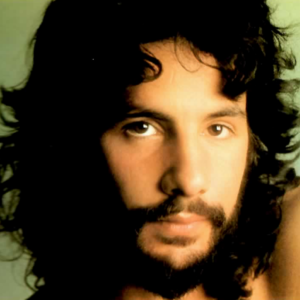 He began as a teen idol in the 1960s and became one of the most influential singer-songwriters of all time. In addition to his vast musical achievements, his lifelong spiritual quest added intrigue and depth to a groundbreaking career.
He began as a teen idol in the 1960s and became one of the most influential singer-songwriters of all time. In addition to his vast musical achievements, his lifelong spiritual quest added intrigue and depth to a groundbreaking career.
He was a prolific songwriter writing songs such as “Here Comes My Baby” and “The First Cut Is The Deepest” for other artists. The latter, in particular, would go on to become an international hit for a variety  of artists. You may be familiar with the Rod Stewart and/or Sheryl Crow versions.
of artists. You may be familiar with the Rod Stewart and/or Sheryl Crow versions.
His songwriting in the early 1970s became more stripped down and personal. His 1970 album Tea for the Tillerman, which went gold in the U.S, contained the classics ‘Wild World’, ‘Hard Headed Woman’, ‘Where Do the Children Play?’, and ‘Father & Son’. However, it was Cat Stevens‘ 1971 Teaser and the Firecat that made him a true megastar. Songs such as ‘Morning Has Broken’, ‘Peace Train’ and ‘Moonshadow’ brought a message of peace and unity.
Morning Has Broken
“Morning Has Broken” is a popular and well-known Christian hymn first published in 1931. It has words by English author Eleanor Farjeon and set to a traditional Scottish Gaelic tune known as “Bunessan“. For you music purists out there the song is noted in 94 time but with a 34 feel. See if you can notice the difference.
Cat Stevens included a version on his 1971 album Teaser and the Firecat. The song became identified with Stevens due to the popularity of this recording. It reached number six on the U.S. Billboard Hot 100, number one on the U.S. easy listening chart in 1972, and number four on the Canadian RPM Magazine charts.
The familiar piano arrangement on Stevens’ recording was composed and performed by Rick Wakeman, a classically trained keyboardist best known for his tenure in the English progressive rock band Yes.
Moonshadow
“Moonshadow” was first released in the UK in 1970 as a single and  on his 1971 album Teaser and the Firecat in the USA.
on his 1971 album Teaser and the Firecat in the USA.
When he appeared on The Chris Isaak Hour in 2009, he said of this song: “I was on a holiday in Spain. I was a kid from the West End (of
London) – bright lights, et cetera. I never got to see the moon on its own in the dark, there were always streetlamps. So there I was on the edge of the water on a beautiful night with the moon glowing, and suddenly I looked down and saw my shadow. I thought that was so cool, I’d never seen it before.”
To me this is very happy and optimistic song. The message is to be present and joyful. No matter what happens look for life’s blessings. The faithful light will find you.
Did it take long to find me? I asked the faithful light.
Did it take long to find me? And are you gonna stay the night?
Peace Train
“Peace Train” is a 1971 song by Cat Stevens, taken from his album Teaser and the Firecat. The song climbed to No. 7 on the Billboard Hot 100 chart during the week of October 9, 1971, becoming Stevens’ first US Top 10 hit. The song also spent three weeks at No. 1 on the adult contemporary chart.
 Pop songs with messages of peace were common in the Vietnam War era, and “Peace Train” was preceded by “Give Peace a Chance” in 1969.
Pop songs with messages of peace were common in the Vietnam War era, and “Peace Train” was preceded by “Give Peace a Chance” in 1969.
During the Iraq War he commented on the song’s renewed relevance, saying: “‘Peace Train’ is a song I wrote, the message of which continues to breeze thunderously through the hearts of millions. There is a powerful need for people to feel that gust of hope rise up again.”

Cat Stevens is a favorite of mine!
Me too!
Great way to start my day. Happy new day.
I loved Cat Stevens in high school!
I love his music! Didn’t know much about him but now I know more.
Ali